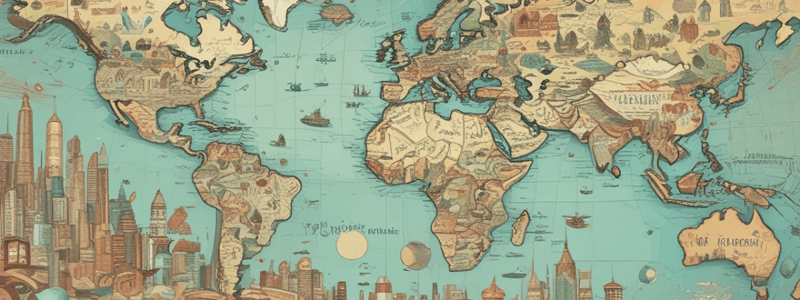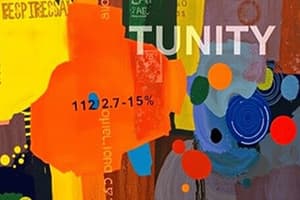Podcast
Questions and Answers
What does the concept of scarcity state?
What does the concept of scarcity state?
- Resources are limited and wants are unlimited. (correct)
- Resources and wants are both limited.
- Resources and wants are both unlimited.
- Resources are unlimited and wants are limited.
Which factor of production refers to the physical space where economic activity takes place?
Which factor of production refers to the physical space where economic activity takes place?
- Entrepreneurship
- Labor
- Capital
- Land (correct)
What is opportunity cost?
What is opportunity cost?
- The total cost of all resources used.
- The value of the next best alternative foregone. (correct)
- The value of the chosen alternative.
- The monetary value of a resource.
In which type of economy do individuals and firms make decisions about what and how to produce?
In which type of economy do individuals and firms make decisions about what and how to produce?
What does the factor of production 'capital' refer to?
What does the factor of production 'capital' refer to?
What is the role of entrepreneurship in factors of production?
What is the role of entrepreneurship in factors of production?
What is the primary reason scarcity exists?
What is the primary reason scarcity exists?
Which factor of production involves the time and effort of human beings?
Which factor of production involves the time and effort of human beings?
In economics, what does opportunity cost represent?
In economics, what does opportunity cost represent?
Which type of economy involves central planning and government control over resource allocation?
Which type of economy involves central planning and government control over resource allocation?
What type of resource does 'capital' refer to in factors of production?
What type of resource does 'capital' refer to in factors of production?
Which factor of production involves the ability to organize and manage resources effectively?
Which factor of production involves the ability to organize and manage resources effectively?
Which type of economy relies on the interaction of supply and demand to make decisions about production and distribution?
Which type of economy relies on the interaction of supply and demand to make decisions about production and distribution?
In a command economy, who makes decisions about what to produce and how to distribute goods and services?
In a command economy, who makes decisions about what to produce and how to distribute goods and services?
Which type of economy typically offers more economic freedom and incentives for production?
Which type of economy typically offers more economic freedom and incentives for production?
Which factor of production refers to the physical tools, machinery, and infrastructure used in the production process?
Which factor of production refers to the physical tools, machinery, and infrastructure used in the production process?
In economics, what is the term used to describe the situation where limited resources result in individuals having to choose between alternatives?
In economics, what is the term used to describe the situation where limited resources result in individuals having to choose between alternatives?
What concept in economics refers to the value of the next best alternative that is forgone when a decision is made?
What concept in economics refers to the value of the next best alternative that is forgone when a decision is made?
When discussing opportunity cost in microeconomics, what does the concept help explain?
When discussing opportunity cost in microeconomics, what does the concept help explain?
In personal finance, if an individual invests in a certain stock, what is the opportunity cost related to?
In personal finance, if an individual invests in a certain stock, what is the opportunity cost related to?
What does opportunity cost involve when making decisions in business according to the text?
What does opportunity cost involve when making decisions in business according to the text?
In macroeconomics, if a government invests in infrastructure instead of education, what is the opportunity cost related to?
In macroeconomics, if a government invests in infrastructure instead of education, what is the opportunity cost related to?
How is opportunity cost defined in economics?
How is opportunity cost defined in economics?
Why is understanding opportunity cost essential according to the conclusion of the text?
Why is understanding opportunity cost essential according to the conclusion of the text?
What does the concept of opportunity cost in economics refer to?
What does the concept of opportunity cost in economics refer to?
Why is the concept of scarcity important in understanding opportunity cost?
Why is the concept of scarcity important in understanding opportunity cost?
In economics, how is opportunity cost used to explain resource allocation choices?
In economics, how is opportunity cost used to explain resource allocation choices?
What does a trade-off involve in the context of opportunity cost?
What does a trade-off involve in the context of opportunity cost?
In a scenario where a person has to choose between watching a movie and buying a book, what is the opportunity cost of watching the movie?
In a scenario where a person has to choose between watching a movie and buying a book, what is the opportunity cost of watching the movie?
How does the concept of opportunity cost influence decision-making in business?
How does the concept of opportunity cost influence decision-making in business?
What does scarcity refer to in economics?
What does scarcity refer to in economics?
In economics, what is the fundamental concept underlying the study of choices?
In economics, what is the fundamental concept underlying the study of choices?
What is the central idea conveyed by the concept of opportunity cost in economics?
What is the central idea conveyed by the concept of opportunity cost in economics?
Which factor influences the opportunity cost of a decision according to the text?
Which factor influences the opportunity cost of a decision according to the text?
How does scarcity impact the opportunity cost of a decision?
How does scarcity impact the opportunity cost of a decision?
Flashcards are hidden until you start studying
Study Notes
Economics Basics
Factors of Production
The factors of production refer to the inputs used in the creation of goods and services. They include:
- Land: The physical space where economic activity takes place.
- Labor: The effort and skills of people in the workforce.
- Capital: The physical resources and infrastructure used in production, such as buildings, machinery, and tools.
- Entrepreneurship: The ability to organize and manage resources to produce goods and services.
Economics focuses on how societies allocate these factors of production to meet their needs and wants.
Scarcity
Scarcity is the fundamental concept of economics, which states that resources are limited, while wants and needs are unlimited. It means that there is not enough of a good or service to satisfy everyone's desires. This leads to the need for decision making and trade-offs.
Opportunity Costs
Opportunity cost is the value of the next best alternative that must be given up in order to pursue a particular course of action. It reflects the trade-off between different uses of resources. For example, if a person chooses to spend more time studying, the opportunity cost is the time spent on other activities, such as socializing or watching TV.
Types of Economies
Economies can be classified into three main types:
-
Market economies: These are economies in which individuals and firms make decisions about what to produce and how to produce it. Market economies rely on supply and demand to allocate resources and set prices.
-
Command economies: In these economies, the government makes all decisions about what to produce and how to produce it. The government determines prices and decides how resources are allocated.
-
Mixed economies: These economies combine elements of market and command economies. They allow for individual decision making but also have government intervention in certain areas.
Each type of economy has its own advantages and disadvantages, and their effectiveness can vary depending on the specific circumstances of a society.
Studying That Suits You
Use AI to generate personalized quizzes and flashcards to suit your learning preferences.




